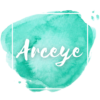In today’s digital age, having a strong online presence is crucial for any business. A well-designed website not only attracts potential customers but also enhances your brand’s credibility. Choosing the right web designer is a vital step in achieving this. But with so many options out there, how do you make the right choice? Here’s a comprehensive guide to help you choose the right web designer for your business.
1. Understand your needs and goals
Before you start searching for a web designer, it’s essential to understand your business needs and goals. Ask yourself:
- What is the primary purpose of your website? (e.g., e-commerce, portfolio, informational)
- Who is your target audience?
- What specific features do you need? (e.g., contact forms, booking systems, e-commerce functionality)
Having a clear understanding of your needs will help you communicate effectively with potential web designers and ensure they can meet your requirements.
2. Look at their portfolio
A web designer’s portfolio is a window into their skills and style. Review their past projects to see if they have experience in your industry and if their design style aligns with your vision. Pay attention to:
- The diversity of their designs
- The functionality and user experience of the websites
- How well the websites perform on different devices (responsiveness)
A diverse portfolio with successful projects is a good indicator of a designer’s versatility and capability.
3. Check client reviews and testimonials
Client reviews and testimonials provide valuable insights into a web designer’s reliability and professionalism. Look for reviews on:
- The designer’s website
- Social media platforms
- Third-party review sites like Google, Yelp, or Trustpilot
Positive feedback from previous clients can give you confidence in the designer’s ability to deliver quality work and meet deadlines.
4. Assess their technical skills
A great web designer should be proficient in various technical skills, including:
- Content Management Systems (CMS) like WordPress
- E-commerce platforms like Shopify or WooCommerce
- SEO best practices
Don’t hesitate to ask potential designers about their technical expertise and how they stay updated with the latest industry trends.
5. Evaluate their communication skills
Effective communication is key to a successful web design project. Assess how well the designer communicates during your initial interactions. Consider:
- Their responsiveness to your inquiries
- Their willingness to understand your business needs
- How clearly they explain their process and ideas
A designer who communicates effectively and listens to your input will likely deliver a website that meets your expectations.
6. Discuss project management and timelines
Understanding how a web designer manages projects and timelines is crucial for ensuring your website is delivered on time and within budget. Ask about:
- Their project management tools and processes
- Estimated timelines for completing different phases of the project
- How they handle revisions and feedback
A well-organized designer will have a clear project plan and keep you informed throughout the process.
7. Inquire about post-launch support
A website requires ongoing maintenance and updates to stay functional and secure. Ask potential designers about the support they offer after the website is launched. Consider:
- Their availability for ongoing maintenance and updates
- Their policy on fixing bugs or issues that arise post-launch
- Any additional costs for ongoing support
Reliable post-launch support ensures your website remains up-to-date and performs optimally.
8. Compare pricing
While cost shouldn’t be the only factor in your decision, it’s important to compare pricing to ensure you get value for your investment. When discussing pricing, consider:
- The scope of the project
- The designer’s experience and expertise
- The quality of their past work
Remember, the cheapest option isn’t always the best. Invest in a web designer who offers a good balance of quality and affordability.
9. Ask for references
Request references from potential web designers and contact their previous clients to get firsthand feedback. Ask about:
- Their experience working with the designer
- The quality of the final website
- Whether the project was completed on time and within budget
References can provide a more comprehensive view of the designer’s work ethic and reliability.
10. Trust your instincts
Finally, trust your instincts. Choose a web designer who not only has the skills and experience but also makes you feel comfortable and confident about the project. A good working relationship is crucial for a successful collaboration.
Conclusion
Choosing the right web designer for your business is a critical decision that can impact your online success. By understanding your needs, reviewing portfolios, checking reviews, assessing technical skills, and considering communication and support, you can find a designer who will create a website that reflects your brand and meets your goals. Remember to trust your instincts and invest in a designer who offers a good balance of quality and affordability. With the right web designer, you’ll have a powerful tool to attract and engage customers, ultimately driving your business forward.

